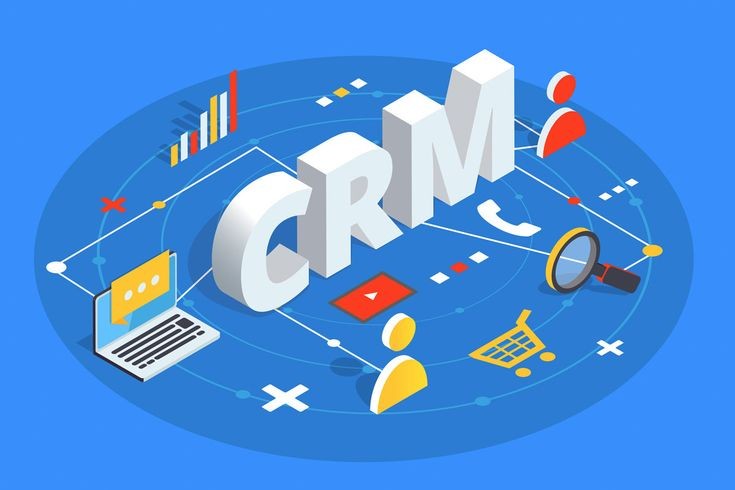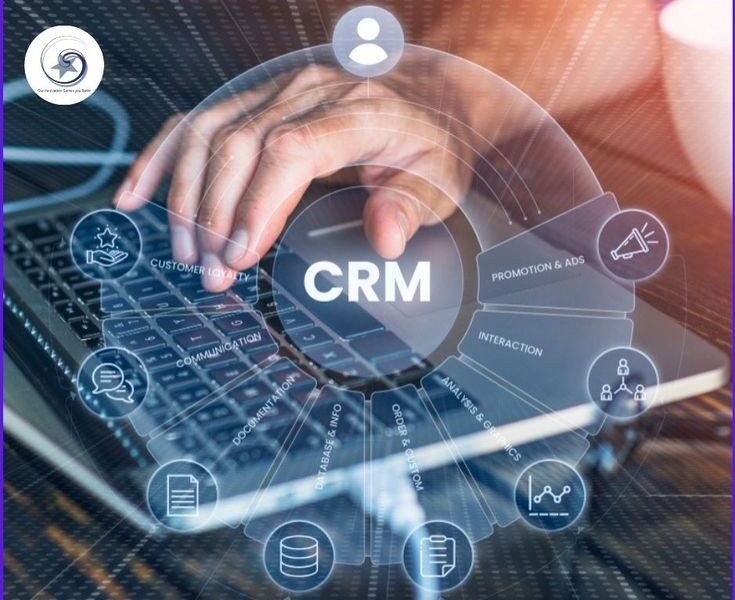How CRM Software Improves Marketing Strategies:
- Personalized Marketing Campaigns:
CRM software centralizes customer data, allowing marketers to segment their audience based on demographics, behavior, purchase history, and preferences. With this information, businesses can create highly personalized marketing campaigns tailored to specific customer segments. Personalization increases the relevance of marketing messages, leading to higher engagement, better conversion rates, and improved customer loyalty. - Better Targeting and Lead Scoring:
CRM systems help marketers improve targeting by tracking and analyzing customer interactions. Through lead scoring, CRM software can prioritize leads based on their likelihood to convert, enabling marketing teams to focus on high-value prospects. This ensures that marketing resources are allocated efficiently and effectively, reducing waste and improving the overall ROI of marketing efforts. - Data-Driven Marketing Decisions:
CRM software provides real-time analytics and reporting tools that offer valuable insights into customer behavior, campaign performance, and marketing ROI. By analyzing this data, marketers can make informed decisions, optimize their campaigns, and adjust strategies to meet customer needs. Data-driven decision-making ensures that marketing efforts are aligned with customer expectations and business goals. - Automation of Marketing Tasks:
CRM software often includes marketing automation tools that help streamline repetitive tasks such as email campaigns, social media posts, and follow-up communications. Automation reduces the manual workload for marketing teams, allowing them to focus on more strategic activities. With CRM-powered automation, businesses can deliver timely and relevant messages to customers, enhancing engagement and increasing the likelihood of conversions. - Improved Customer Retention:
CRM software helps businesses maintain ongoing communication with customers, which is crucial for building long-term relationships. Through automated follow-ups, personalized offers, and loyalty programs, CRM systems ensure that businesses stay connected with existing customers. This consistent engagement fosters customer loyalty, reducing churn and increasing the lifetime value of each customer.
Top CRM Software for Marketing Campaigns:
- HubSpot CRM:
HubSpot CRM is an all-in-one marketing platform that helps businesses manage customer relationships, run marketing campaigns, and track performance. It includes tools for email marketing, social media management, lead nurturing, and analytics. HubSpot CRM is known for its ease of use and robust features, making it a great choice for marketers looking to improve their marketing strategies. - Salesforce Marketing Cloud:
Salesforce Marketing Cloud is a comprehensive CRM platform designed to support advanced marketing efforts. With features like customer segmentation, email automation, and social media integration, it enables marketers to deliver personalized campaigns across multiple channels. Salesforce Marketing Cloud is ideal for businesses looking for a powerful CRM tool to optimize their marketing strategies. - Zoho CRM:
Zoho CRM offers a range of marketing automation tools that help businesses create personalized campaigns, track leads, and measure campaign performance. It includes email marketing, lead nurturing, and segmentation features that empower marketers to deliver targeted messages. Zoho CRM is a cost-effective solution for small and medium-sized businesses looking to enhance their marketing efforts. - ActiveCampaign:
ActiveCampaign is a CRM platform that focuses on customer experience automation. It offers email marketing, automation workflows, segmentation, and reporting tools, making it a powerful choice for businesses looking to improve their marketing campaigns. ActiveCampaign helps marketers create highly personalized customer journeys and increase engagement at every stage of the sales funnel.
Best Practices for Using CRM Software in Marketing:
- Segment Your Audience:
Use CRM software to segment your customer base based on various criteria such as demographics, purchase history, and engagement levels. Targeting specific customer segments allows you to deliver more relevant and personalized marketing messages, which increases the likelihood of conversions. - Leverage Automation to Save Time:
Take advantage of CRM automation tools to streamline your marketing efforts. Automate tasks such as email follow-ups, social media posts, and lead nurturing, allowing your team to focus on more strategic activities. Automation helps deliver consistent, timely messages to customers and prospects, improving engagement and response rates. - Monitor Campaign Performance:
Use the reporting and analytics tools in your CRM software to track the performance of your marketing campaigns. Regularly review key metrics such as open rates, click-through rates, and conversion rates to identify areas for improvement. By continually optimizing your campaigns, you can improve marketing effectiveness and achieve better results. - Integrate CRM with Other Marketing Tools:
To maximize the benefits of CRM software, integrate it with other marketing tools you use, such as email marketing platforms, social media management tools, and content management systems. Integration ensures that customer data is consistent across all channels and allows for more efficient marketing execution.
Conclusion:
CRM software is an essential tool for businesses looking to enhance their marketing strategies and improve campaign effectiveness. By centralizing customer data, automating tasks, and providing valuable insights, CRM systems enable businesses to create personalized campaigns, target the right leads, and make data-driven marketing decisions. With the right CRM solution, businesses can streamline their marketing efforts, improve customer engagement, and drive better results, ultimately leading to increased sales and customer loyalty.




